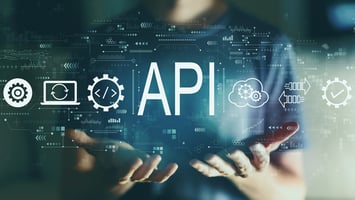As artificial intelligence (AI) and generative AI (Gen AI) become integral to modern businesses,...
What is the difference between AI Assistants and AI Agents?
AI Agents vs. AI Assistants: Understanding the Difference
Artificial intelligence is transforming the way we interact with technology, and two of the most prominent applications are AI agents and AI assistants. While they may sound similar, these terms describe distinct functionalities with unique applications. Understanding the differences between AI agents and AI assistants is key to leveraging the right technology for your needs.
What Are AI Assistants?
AI assistants are tools designed to help users with specific tasks through natural language processing and automation. They operate reactively, meaning they perform actions based on user commands or inquiries. Think of AI assistants as digital helpers that simplify your daily life by providing answers, scheduling tasks, or automating basic processes.
Key Features of AI Assistants:
- Task-Focused: AI assistants are built to execute tasks like setting reminders, sending emails, or providing weather updates.
- User-Centric: Their functionality revolves around interacting with users to fulfill requests.
- Examples: Siri, Alexa, Google Assistant, and Cortana.
AI assistants excel in enhancing productivity and making life more convenient. However, their capabilities are often limited to predefined functions and require explicit user input to operate.
What Are AI Agents?
AI agents, on the other hand, are more advanced and autonomous. Unlike assistants, they can make decisions and act independently based on predefined goals or rules. AI agents are typically designed to perform complex, multi-step tasks and can adapt their behavior over time through machine learning and contextual understanding.
Key Features of AI Agents:
- Autonomy: AI agents can operate without continuous user input, making decisions and initiating actions independently.
- Proactive Behavior: They can analyze data, predict outcomes, and act accordingly to achieve their objectives.
- Goal-Oriented: While assistants execute tasks, agents work toward broader goals, often involving multiple interconnected actions.
- Examples: Chatbots for customer support, recommendation systems, and robotic process automation (RPA) tools.
AI agents are increasingly used in industries such as finance, healthcare, and logistics, where automation and intelligent decision-making are critical.
The Key Differences
|
Aspect |
AI Assistant |
AI Agent |
|
Functionality |
Reactive, task-oriented |
Proactive, goal-oriented |
|
User Interaction |
Requires direct user input |
Operates autonomously |
|
Adaptability |
Limited to predefined capabilities |
Learns and adapts to new data |
|
Use Cases |
Personal productivity, simple automation |
Complex workflows, advanced decision-making |
When to Use AI Assistants vs. AI Agents
The choice between an AI assistant and an AI agent depends on your goals and the complexity of the tasks at hand:
- Choose AI Assistants if:
- You need a straightforward tool to handle basic tasks like reminders, information lookup, or simple automation.
- User interaction is central, and explicit commands drive the functionality.
- Choose AI Agents if:
- You require a system capable of handling complex, multi-step processes with minimal intervention.
- Decision-making, adaptability, and scalability are essential.
- You’re looking to automate intricate workflows or optimize operations across systems.
The Future of AI Assistants and Agents
As AI continues to evolve, the lines between assistants and agents may blur. Future technologies may combine the conversational capabilities of AI assistants with the autonomy and decision-making power of AI agents. This convergence could enable more intelligent systems capable of understanding, predicting, and acting in ways that seamlessly integrate with human workflows.
Whether you’re leveraging AI for personal use or enterprise applications, understanding the distinction between AI assistants and AI agents ensures that you choose the right tool for your needs. Both have their strengths, and as technology advances, they will continue to play a pivotal role in reshaping how we interact with the digital world.
If you’re interested in hearing or learning more about the on-premise AI Agent and AI Assistant projects AI Empower Labs is working on, designed to keep your data completely private, please use the contact form below.
Contact us




Add your comment